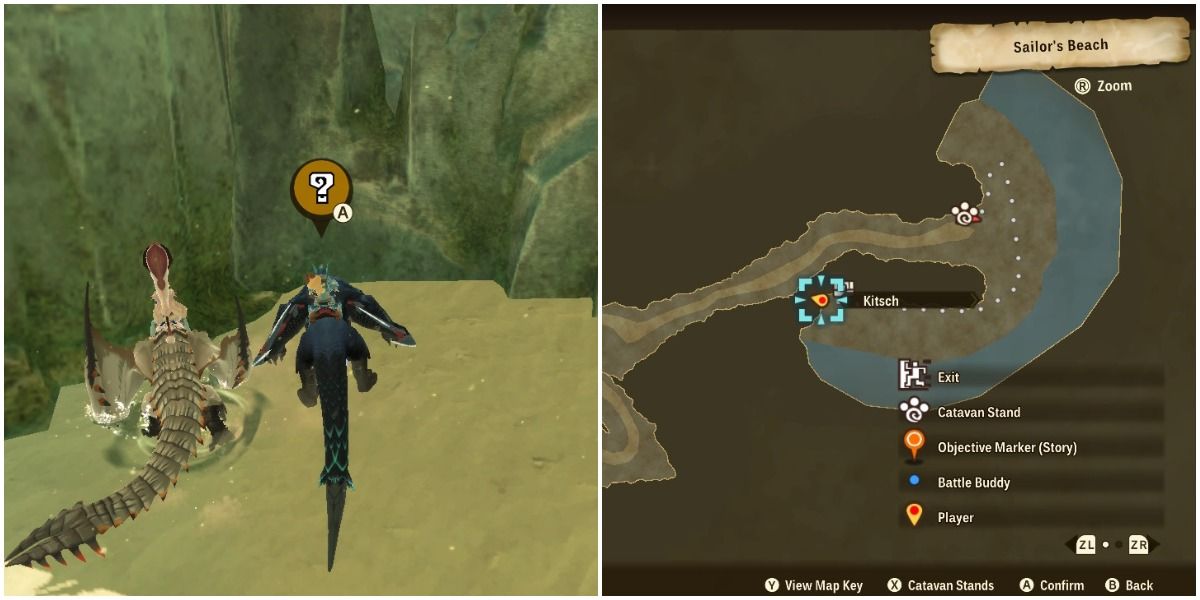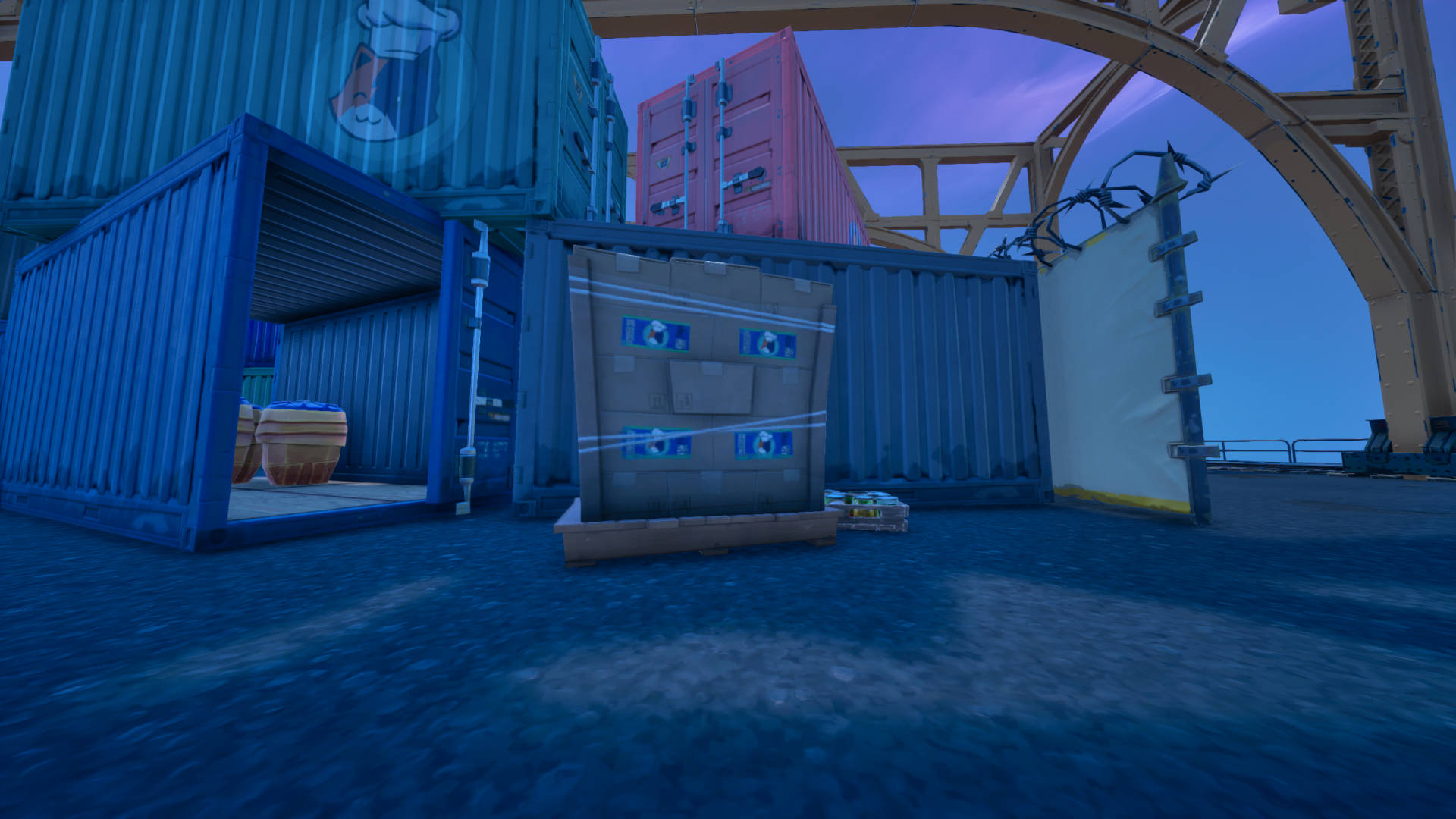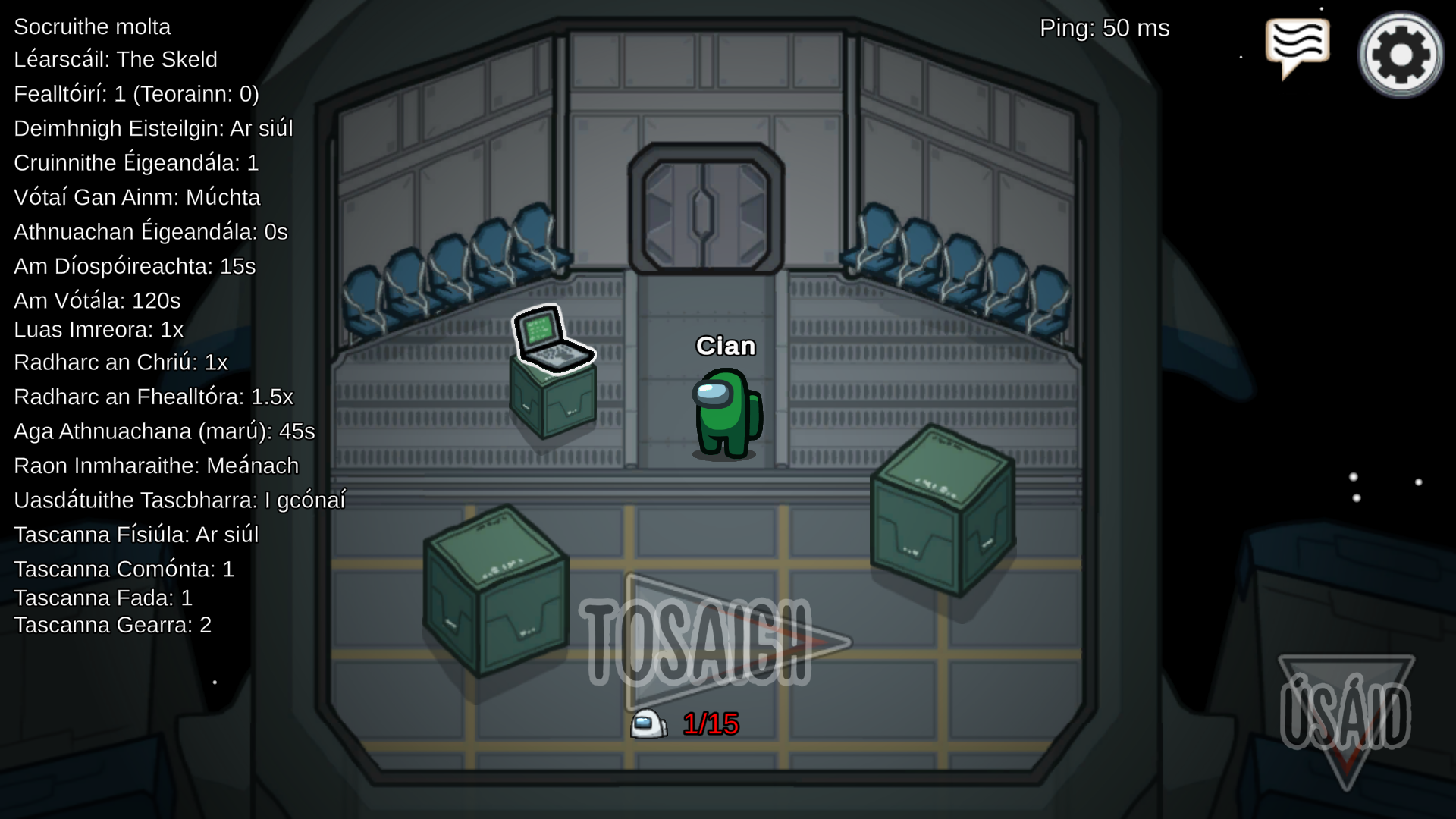
According to the 2016 Census of Ireland, approximately 73,803 people outside of education claimed to speak Irish on a daily basis. At that time, Ireland had a population of 4.726 million people, meaning that Gaelgoirí who regularly spoke Irish in their day-to-day lives represented around 1.5% of all people living in Ireland. That last figure is dismal.
Video games often forget about the Irish language – after all, the vast majority of that 1.5% of people also speak fluent English. That doesn’t make it any less important to support the language – if anything, it makes it more important to preserve it. The way Irish is taught in Ireland leads to many teenagers deciding they hate the subject as a means of rebellion against an outdated regime. It’s mandatory in both primary and secondary school and people often complain that their Gaeilge is weaker than the foreign language they spend less than half the time learning. But our language is one of the pillars of our culture, and coming up with new ways for young people to engage with it is essential to revitalizing our beautiful, musical mother tongue. That’s why I was so excited when I woke up this morning to see a Eurogamer report on Among Us’ new Irish localization – this is exactly the kind of thing we need to ensure our culture earns the authoritative position it deserves for posterity.
Related: Link's Arm Offers Key Insight Into The Irish Origins Of Breath Of The Wild 2
Úna-Minh Kavanagh is a multimedia content creator, travel writer, author, and journalist from County Kerry in the southwest of Ireland. After being adopted from Vietnam by a single Irish mother when she was just six weeks old, she grew up learning to speak Irish from her grandfather, a native Irish speaker from the Gaeltacht region of Baile na nGall. 30 years later, she has just spearheaded the localization project designed to make one of the most popular games on the planet playable in Gaeilge.
It is with great EXCITEMENT that I bring you the incredible news that I have been dying to tell you for months. TODAY, the OFFICIAL Irish translation of @AmongUsGame was launched into the game. It's a MASSIVE win for a minority language and one of many I hope! #Gaeilge pic.twitter.com/81bNrjU5cI
— Úna-Minh (is my first name not Úna) Caomhánach ✨ (@unaminhkavanagh) July 7, 2021
“Because there were just three of us in my family, I grew up very close to them and because of my grandad, I was brought up bilingually with Irish and English,” Kavanagh tells me. “I attended a Gaelscoil, which is an Irish-speaking primary school, and from there went on to secondary school where Irish was my strongest subject.” Kavanagh received top marks in both her Junior and Leaving Certificate, although unfortunately her grandad passed away before being able to see her success. Still, the fact they used to listen to the radio together, combined with their mutual love of Irish culture, was what ultimately drove Kavanagh to pursue a degree in Irish and Journalism at Dublin City University, where she hosted an Irish show, was the Irish editor of the student newspaper, and started making videos for YouTube. She has since started streaming on Twitch under the moniker ‘Yunitex’ – after seeing the lack of Irish content on the platform, she decided to just do it herself. She now has a dedicated Irish stream every Sunday where she plays RPGs, chats, and offers Duolingo lessons in Irish. She’s also the founder of WeAreIrish, a project designed to showcase the people of various shapes, colours, and ethnicities who live in Ireland today – the initiative’s official website launched just prior to the pandemic hitting last year.
“I was approached by Callum from Robot Teddy, the consulting firm supporting InnerSloth – who developed Among Us – after I made a statement on Twitter asking for Irish to become an official part of the game,” Kavanagh says. “With the enthusiastic support we got from him, our team got set up with NDAs. We then worked with LockitQA on getting all of the text and documentation and set to work.”
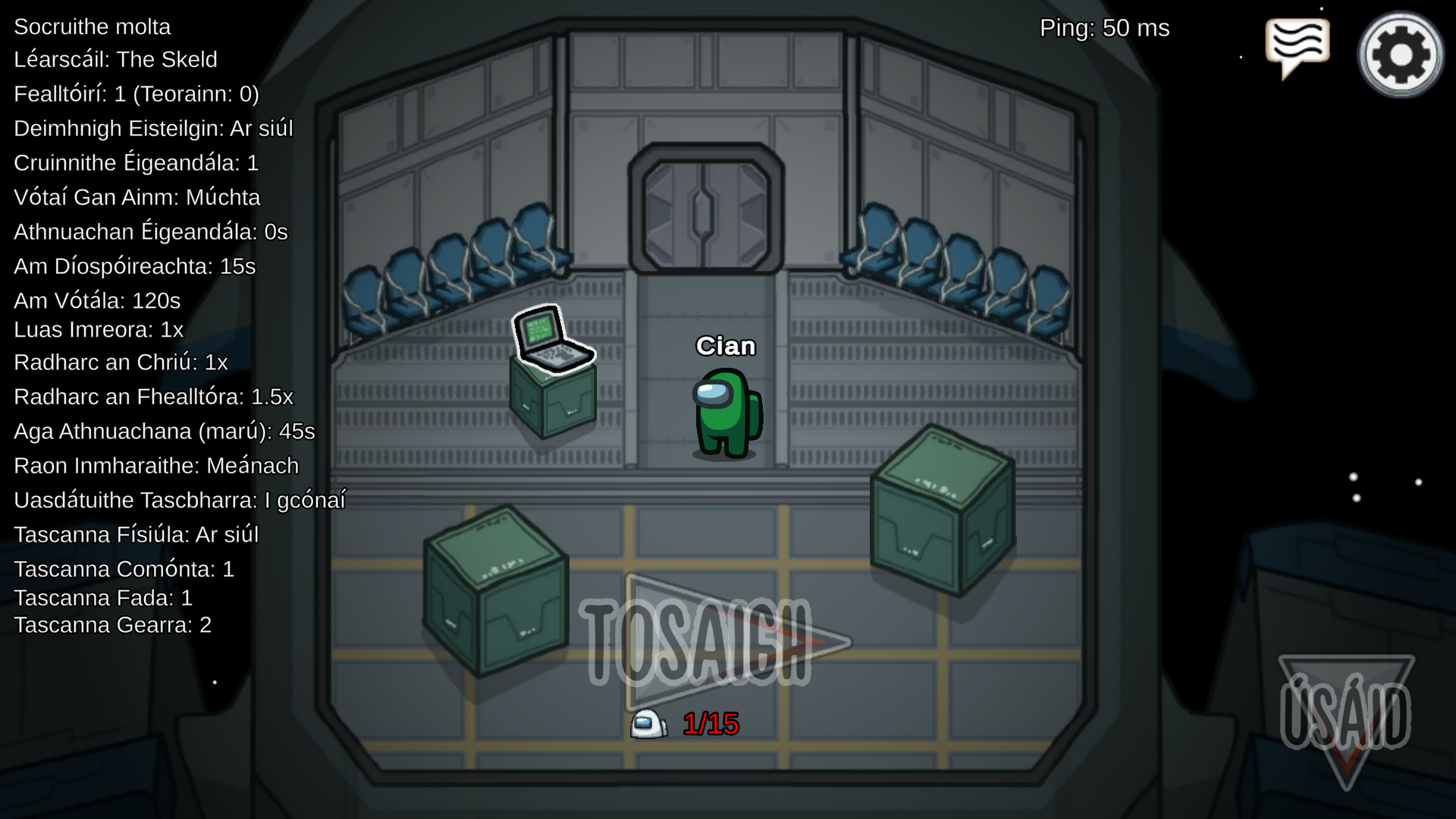
Kavanagh explains that this was mostly new territory for her and the rest of the team – Brian C. Mac Giolla Mhuire, Cormac Cinnsealach, and Mike Drinkwater. After liaising with Michaël Lelièvre from LockitQA, they got to work on implementing accurate Irish language support for Among Us, which involved three rounds of checking and a full test-run prior to its official launch. “One of the biggest challenges was the QuickChat menu,” Kavanagh says. “Irish's grammar is very specific – for example, we don't have words for 'yes' and 'no' and we also use the Verb/Subject/Object order – so we had to be mindful of that.”
While Among Us might ostensibly appear to be relatively light on text, especially compared to triple-A games, translating it to Irish was no easy feat. “There were actually hundreds and hundreds of lines of text that had to be translated for this,” Kavanagh tells me. “Not only that, but we had to make decisions on whether something would work for context and also just fit within the boundaries of the graphics. Definitely not as much as triple-A, but it's no wonder why it can take so long.”
It’s worth the effort, though, given how important it is to actually add Irish as a viable language to play games in. While some major titles feature it as an option – namely, PUBG and Minecraft – and developers like Terry Cavanagh (Dicey Dungeons, VVVVVV, Super Hexagon) make conscious efforts to support it, Irish is sorely lacking from the majority of major blockbusters.
“A lot of people don't even realise it's an option,” Kavanagh explains. “But for this option to exist, one needs to have the skills necessary to approach companies and make it happen.”
Most of the reason as to why people don’t recognize Irish as a possible localization option boils down to the fact that even at home, people regularly dismiss it as a dead language. This rhetoric is usually born from the aforementioned rebellion against the language that occurs with the majority of 15-year-olds in secondary school, but it’s an outdated outlook with no foundation in reality.
“Those who tout [‘dead language’ rhetoric] have no intention of ever learning it or using it, so it will always be hard to change their minds,” Kavanagh says. “For me, the language is something that I used in my everyday life, not just in school. I use it for my career, with my friends, and online. I don't think they understand how disrespectful it is to go up to someone and repeatedly tell them their language is useless or dead.”
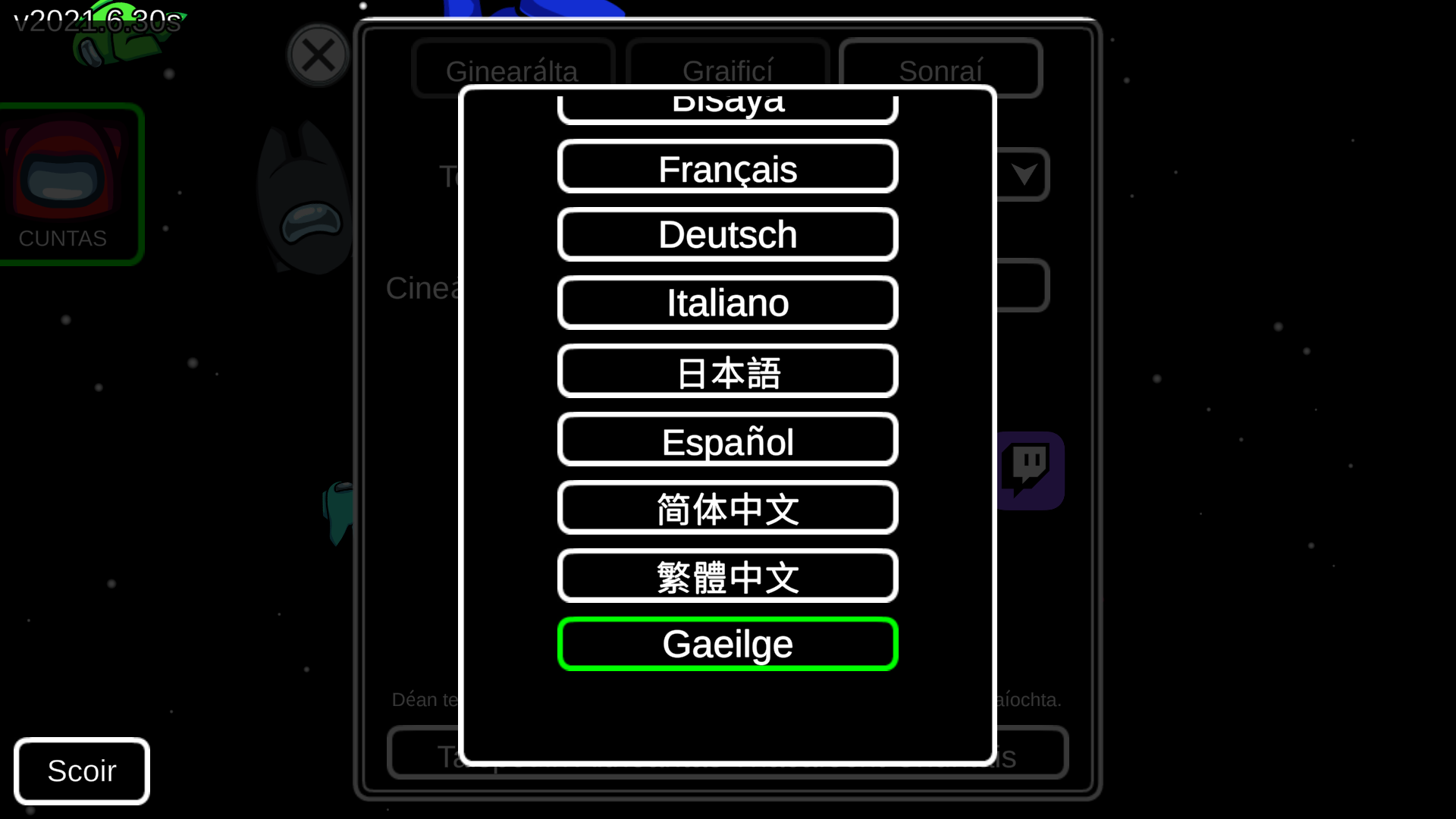
This is what makes Kavanagh and her team’s efforts with Among Us so special. As she mentioned earlier, the only way to fix a situation like this is to actively instigate change. It’s easy to lament the lack of Irish in video games, but quietly complaining about it achieves nothing. Kavanagh had her work cut out for her putting full Irish language support together for Among Us, but now kids all over the country – and abroad, in some cases – can engage with the language in a way that’s fun, organic, and conducive to restoring our language’s place in modern Irish culture.
“It's also something that's skilled,” Kavanagh says. “I'm not a translator in the sense that right now, I wouldn't have the lyricism to translate a book, but I'm good at management, organising, and doing straightforward translations. Plus, I knew Among Us inside out, which helped the rest of the group understand what the actions meant. The other members do play games but wouldn't be as familiar, and some of them would have a higher standard of Irish than I, so with our united skills we were able to work effectively together. Change happens when people just go and do it themselves or find people, not just sit around and lament that nothing is being done.
“I'd already heard stories about school students in Gaelscoileanna – Irish language speaking schools – using Among Us and putting their own Irish on it and thought, ‘Wouldn't this be amazing as a learning tool?’ For a minority language like Irish, it's vitally important that fresh, modern, and quality content is created and that's what spurred me on the most. Similar to other members of the team, we realised that we could complain about the lack of games available through Irish or we could just do it ourselves. The key thing here is that we didn't want to just do it, we wanted to do it well. Hopefully it will inspire others to realise that it's more than just a game in Irish.”
Next: We Did The Math: Which Subscription Service Has The Best Games?
